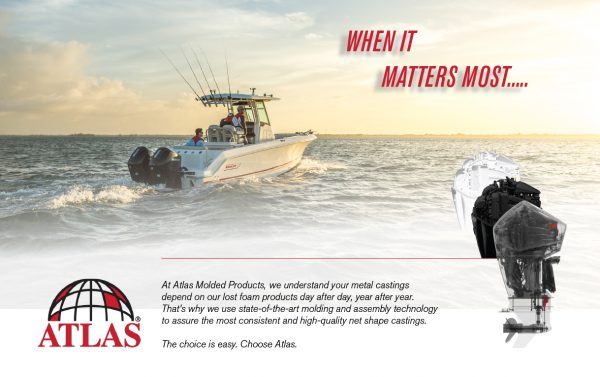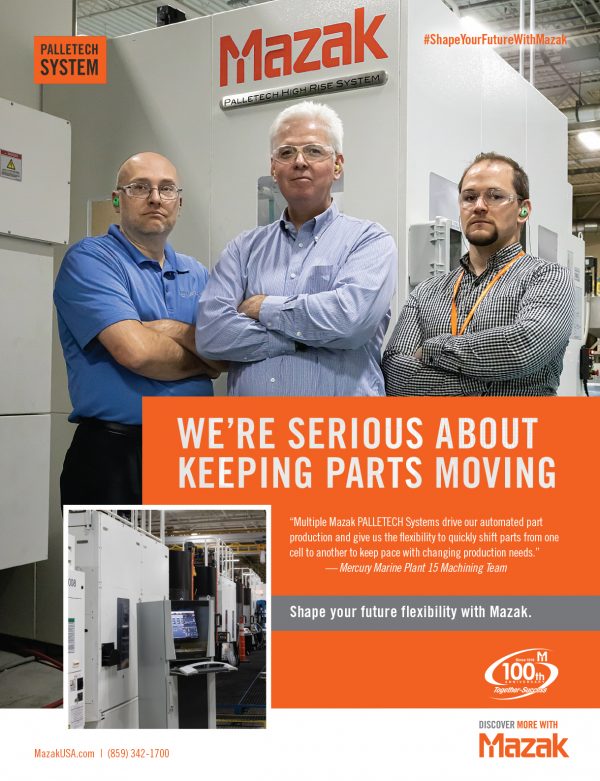Marty Bass knows that not all outboard motors are created equal and that his company, Mercury Marine, makes the best. “We are first and foremost a product design company,” the President EMEA tells The CEO Magazine. “Every time we launch something new, we know it’s going to be a leader in its category by a large margin.”
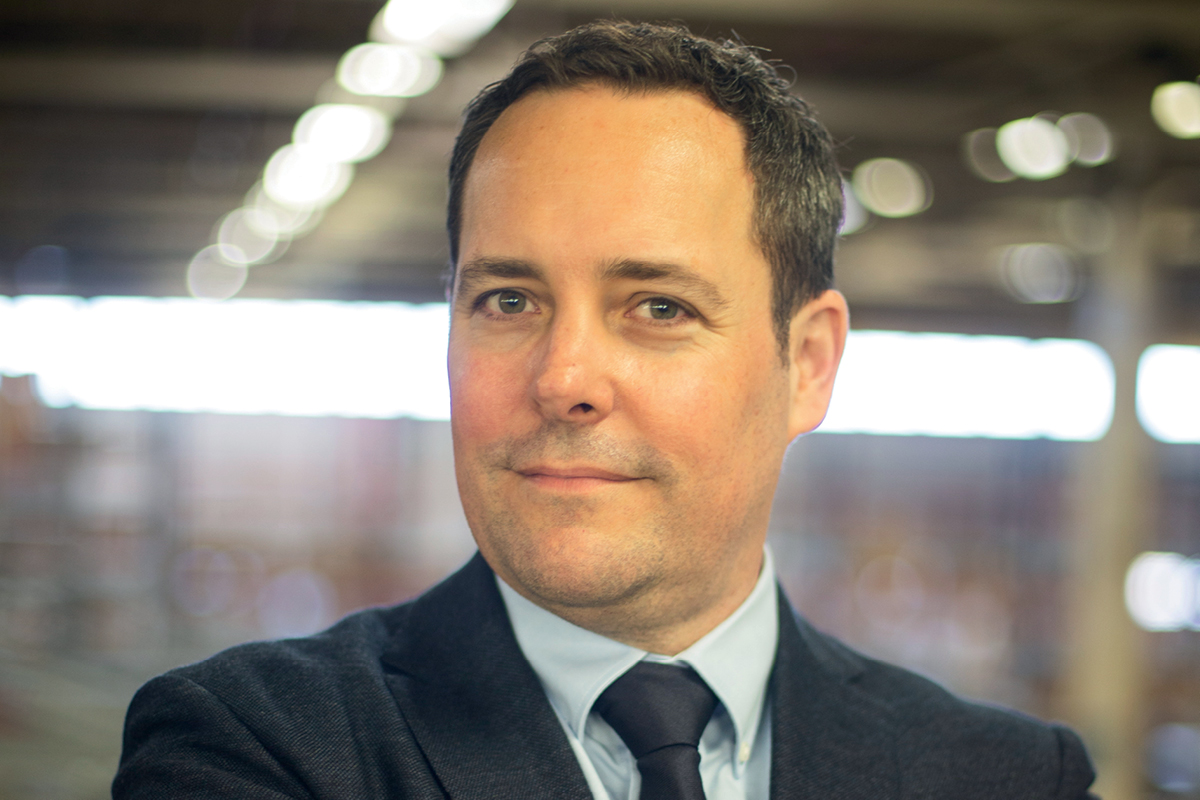
This is a claim backed by experience. “Throughout the company’s history, and specifically in the past five or so years, we’ve had some real blockbuster product launches,” he says.
This position is owed in part to the company’s dedication to the marine market. “Many of our competitors came into the sector from motorcycles or lawn equipment,” he explains.
“We pride ourselves on the fact that we get up in the morning and go to bed at night thinking about the marine consumer. The level of detail that we pursue in order to give value to them is unmatched in the industry.”
Founded by NASCAR legend Carl Kiekhaefer as a standalone machine shop in the US state of Wisconsin in the late 1930s, Mercury has grown to become a synonym for reliability, power, performance and value in boating communities around the globe.
Today, it is a part of the Brunswick Corporation, along with other leading marine brands such as Bayliner and Boston Whaler.
With a Master of Science in mechanical engineering from the Naval Postgraduate School and an MBA from Kellogg School of Management at Northwestern University, Marty, an ex lieutenant of the US Navy, joined Mercury in 2006.
He was first based in its Fond du Lac, Wisconsin headquarters and held titles across strategy and development, including Vice President of Global Product Management, before relocating to Belgium in May 2016 for his current role.
We get up in the morning and go to bed at night thinking about the marine consumer.
“In all my previous positions, my success was defined by understanding how the company could excel. They were about figuring out consumer needs, how our competitors were aligned with the market and what our overall organisational capabilities were,” he explains.
“My current job is more about day-to-day leadership. As it’s outside of North America, there’s a component of cultural diversity to it, which is appealing to me.”
The appointment was, he continues, a natural fit for where he wanted to go in his career. Since the company’s 80th anniversary celebrations in 2019, Marty has had several busy months.
“Keeping a certain pace of innovation is important to our strategy, so you’re going to see the release of many new products,” he reveals.
With its all-new V-8 outboard series, the company has combined heritage and innovation to create faster and more lightweight engines with increased fuel efficiencies.
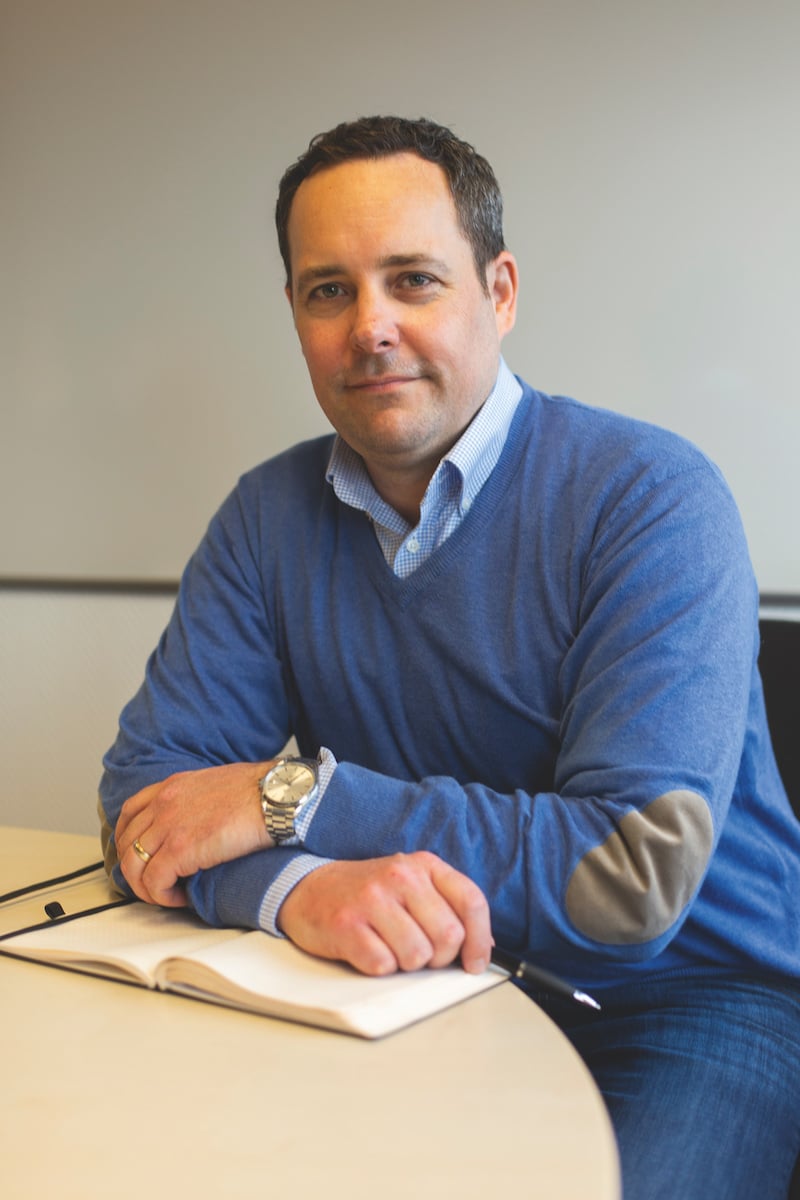
“The big challenge for us is to step up and deliver against exceptionally high demand for these new products, which, at the moment, is greater than our production capacity for them.”
“We are making large investments in the US and with our suppliers globally to ensure we manage to do so,” he continues.
And while EMEA isn’t a manufacturing base, the company does have a distribution centre in the region, which Marty says it is investing in “with the goal of dramatically bettering our customer experience”.
“We have a warehouse management system that we installed in 2017 and have been in the process of delivering continuous improvement month after month.
Customers are finally starting to see the benefits,” he explains. But with this new technology comes a transformation of long-established processes.
“Our old system had been in place for 30 years,” he says. “When we flipped the switch, it significantly changed the lives of the operators down on the floor picking and packing parts.”
This change management, he admits, has been his biggest test in the role so far. Fortunately, the people at Mercury, just like the product range, are first-rate – which helps when he is responsible for an expansive region that extends from South Africa to Russia.
“We have a world-class supply chain team here in EMEA. Our managers are very capable; they deal with a lot of complexity and a customer base that, especially on the parts and accessories side, often need same-day dispatch or next-day delivery.”
“We believe that we have the best team in the marine industry. We have many long-term employees who simply know how to get things done,” he continues. “But we are never satisfied. We continuously bring in new talent with the intention to develop them internally.”
It’s these same people who have helped position Mercury as more than a supplier of premium marine equipment.
“We partner with original equipment manufacturers (OEMs), dealers and distributors around the globe who know that, with our brand, their customers will be satisfied,” Marty says.
Particularly in the case of the OEMs, the relationship extends beyond a traditional partnership. “Many of them have aspirations to grow so they don’t just regard us as a component supplier. They consider us a value-added business development partner.”
“You’ll see OEMs here in Europe that want to expand into the US, Australia or even Asia, for instance,” he elaborates.
“They come to us for guidance on where they should look for dealerships and where their products fit into those markets.” Having capable people, he believes, is what feeds this – as does a global network 80 years in the making.
Although this industry knowledge is what gives the company an edge, Marty admits that in many ways it is also what poses the biggest challenge. “Ours is a fragmented market,” he acknowledges. “We have thousands of OEM customers and more than 10,000 service points globally.”
These dealers, many independent and family-owned, are where customers usually have their first contacts with the Mercury brand. To Marty, therefore, they also represent an ongoing opportunity to constantly improve and ensure that every touchpoint is a pleasant one.
“We have the right products. We just need to make sure that the customer experience stays relevant,” he continues.After all, the marine industry, like most, is not immune to changing consumer expectations.
“Upcoming generations may want to use their boats in a different way to their parents. Some may not even want to own a boat. Keeping our channel up-to-date while also anticipating what the consumer will need in the future is our big challenge,” he explains.
He adds that “there’s no big bang solution”, but reveals that the company will continue to focus on technology – and not only in application to products.
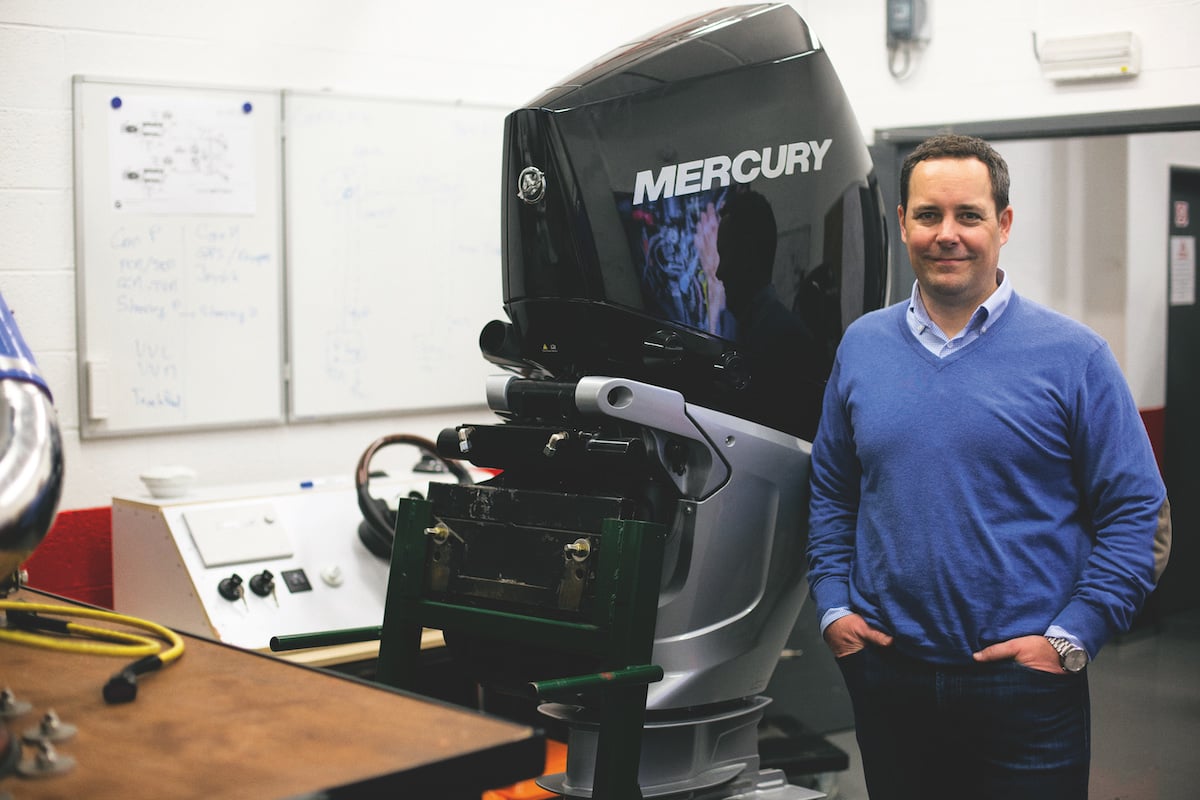
“It’s about making the overall boating experience more intuitive and more robust. We want to remove some of the hassles and reduce maintenance,” he says.
There’s now even an app that links Mercury engines to their owners’ smartphones and, in case of difficulties, sends the closest dealer technical information about what’s going on.
“It’s all about driving the dealer channel through technology so that we can be more responsive to the consumer,” Marty attests.
We have the right products. We just need to make sure that the customer experience stays relevant.
Investment in alternative boat ownership models is another way the company is showing that it listens to its customers. In late 2019, Brunswick acquired the primarily North-American-based Freedom Boat Club, where a membership fee unlocks access to more than 2,000 boats.
“We see this as an obvious path, not only for millennials but also for every age group, to experience boating without ownership. We want to get our brand front and centre to deliver a great experience.”
Not only is this new way to boat set to shake up the Mercury business model, it is also expected to transform the firm’s supply chain.
“The traditional model is that an engine gets sold to an OEM or a dealer where the boat is delivered. From there, the phone is picked up whenever there is a service requirement,” he explains.
“But in the new model, you have a dealer, a marina or a private franchisee owning the assets. Their costs are substantially different from a direct seller.”
These boat sharing businesses are also seasonal by nature and heavily dependent on fine weather. “Every minute of that time is precious, so the service level has to be top-notch,” he continues.
It’s an evolution he doesn’t think many traditional dealers are prepared for. “We are actively looking for new, innovative channel partners to take it on,” he says.
And thanks to Mercury’s long-established brand awareness and reputation, Marty promises, “We are going to help spread these practices globally.”
Proudly supported by:
